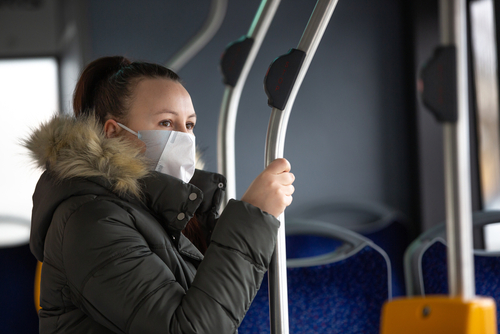
More than 100 public transit agencies have joined the American Public Transportation Association in launching a new “Health and Safety Commitments Program” aimed at assuring passengers that public transit systems are doing everything they can to operate safely.
The program stems from a survey of public transportation users about what measures the industry should take to make them feel safer riding public transportation amid the COVID-19 pandemic. Industry officials identified four areas transit systems need to address to regain riders’ trust – following public health guidelines, frequent cleaning and disinfecting transit vehicles, informing and empowering passengers, and requiring riders and employees to avoid public transit if they have been exposed to COVID-19 or feel ill.
As part of the program, transit systems have pledged to meet these commitments. A key component of the Health and Safety Commitments Program, however, is the shared responsibility of both transit systems and their riders to follow guidelines.
“This program emphasizes the commitment that this industry is making to all those we serve now and to those who we look forward to serving,” said Nuria I. Fernandez, APTA Chair, and General Manager and CEO of Santa Clara Valley Transportation Authority. “Public transportation is and will be vital to the social and economic recovery of our nation. But getting there requires us to win back our ridership and encourage new riders to view public transit as a preferred mobility choice. We believe this commitment program will help do this.”
APTA, however, renewed its request to Congress and the Trump administration to provide at least $32 billion in emergency funding to the public transportation industry to ensure that public transit services can continue to operate.
“The program being launched today is the public transportation industry’s pledge to promote sensible policies and practices designed to keep transit users and transit employees safe during the COVID-19 crisis,” said APTA President and CEO Paul P. Skoutelas. “It is a logical extension of the innovation and commitment we have been demonstrating for the past several months – and it makes the need for at least $32 billion in additional emergency funding that much more urgent and critical.”